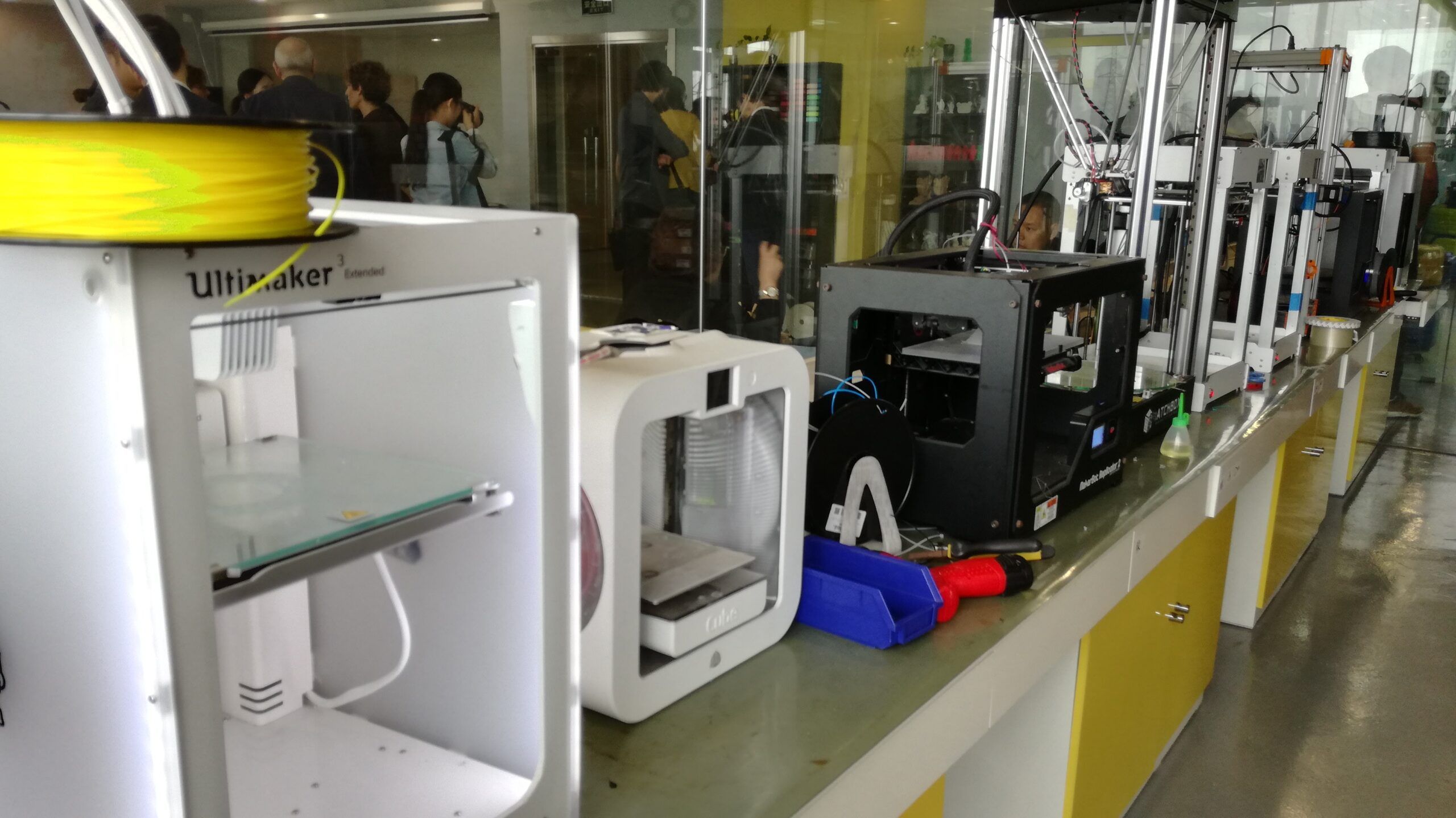T-Lab 2 “Urban Production and Digitisation” combines the upcoming potential of Industry 4.0 and Industry 5.0 with the innovative perspectives of young digital start-ups and socio-digital movements such as the maker movement. Meanwhile spaces open facilitates the integration of these topics, e.g. in maker spaces and urban innovation hubs. The Lab focuses on adopting a human-centric approach for digital technologies including artificial intelligence, up-skilling and re-skilling workers, particularly in the fields of digital skills, and modern, resource-efficient and sustainable industries.
In the context of urban regeneration projects, it is a matter of concern of how makers, artists, creatives can stimulate job creation and new modes of enterprise, connecting traditional and digital crafts, diverse communities and generations. Arts, culture and creativity provide a range of modes to engage communities through relational practices and through a ‘bottom-up’ process that is trans-generational, which is able to address marginalised and vulnerable groups.
The article discussed here is presented by authors from tecnalia (Bilbao, Spain) on the topic of Social Manufacturing as a popularisation of personalised fabrication. Due to the development of new open technologies, many social technology- based movements such as “Do It Yourself” (DIY), “Hackers” and “Makers” have developed in recent decades. The paper presents a comprehensive analysis of all these trends and proposes “Social Manufacturing” as a term which comprises a new paradigm of personalised manufacturing based on new open technologies. The authors describe the main features of this movement after reviewing the existing literature, ending with the results of qualitative research completed with the collaboration of different makerspaces based in Spain.
Where the new DIY Wave is carried out
All of these movements—whose origins lie in classical DIY—have transcended digital communities and specific events becoming more ubiquitous and adopting real-life stability in the form of spaces for co-creation. “Hackerspaces”, “Fab Labs” or “Media Labs” are just some names that many authors have used to describe this type of space, which offers different machinery for fabricating digital goods in a collaborative manner and allows them to “play with technology.” These facilities and tools (always open-source), such as 3D printers and laser cutters, allow them to experiment and learn with other users through informal and practical learning (also known as “learning by doing”) and developing self-managed projects.
The popularisation and spreading of these spaces has increased notably in recent years. The phenomenon has shifted from being just an emerging trend to becoming a reality present in many urban environments as well as rural areas. The expansion of such spaces has also occurred due to the increasingly common holding of events dedicated to the hacker and maker phenomenon in a wide range of cities including Maker Fairs, Hackathons, Open Hardware Summits and other similar events.
The authors propose “Social Manufacturing” as a term that implies expressions of digital production that is characterised by:
- A p2p (peer-to-peer) production basis.
- Using open source & non-proprietary technologies.
- Promoting informal learning (offline and online).
The transformation to new innovation ecosystems that are based in p2p and open manufacturing lies not only in the use of new technologies but also in the organisational systems and the way the knowledge flows.
KEY LEARNINGS
- Three characteristics of Social Manufacturing:
- Commons-based peer production
- Open technologies
- Informal learning
- The real challenge is how to scale up ecosystems of “Social Manufacturing” to other scenarios like traditional manufacturing factories (S. Lindtner, 2014) and how society can evolve to a basis where knowledge can be easily shared, replicated and transferred.
- Emerging challenges in the upcoming years have to be assumed in collaboration by policy makers, academia and industry.
- Hackerspaces can foster collaboration between a wide range of social actors (Maxigas, 2012)
- Funding from the municipality or regional authorities could help recover urban areas that have deteriorated due to de-industrialization processes depending on the location of such movement.
Authors: Jorge García (Tecnalia) // T-Lab 2
